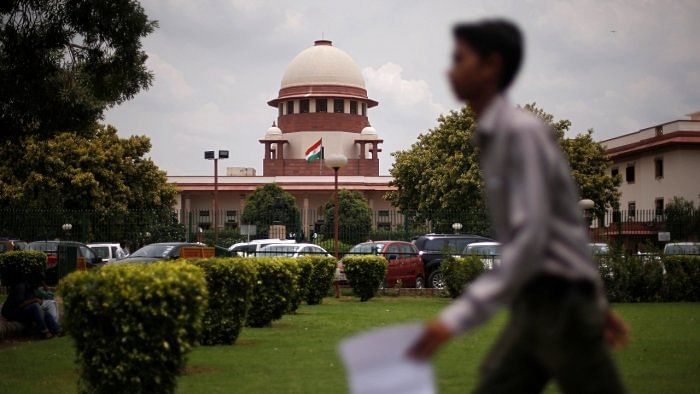
The Supreme Court on Wednesday brushed aside the Union government's contention that same sex marriage is an urban elitist concept, saying there is no data to back this. It also maintained the State cannot discriminate against an individual on the basis of a characteristic over which the individual does not have control.
"When you see it is innate characteristics then it counters urban elitist concept...urban perhaps because more people are coming out of the closet. Government does not have any data also to show that same sex marriage is an urban elitist concept," a five-judge bench led by Chief Justice of India D Y Chandrachud said, while hearing a plea for recognising same sex marriage.
Appearing on the petitioners side, senior advocate Abhishek M Singhvi submitted that a person’s sexual orientation is intrinsic, it is connected with individuality and identity and a classification which discriminates persons on their innate nature would be violative of their fundamental rights and cannot withstand the test of constitutional morality.
On this, the CJI said, “The State cannot discriminate against an individual on the basis of a characteristic over which the person has no control”. Singhvi said this is the essence of it. “When you say it's an innate characteristic, it's also an answer to argument in response to the contention that it is elitist or urban or it has a certain class bias.
Something which is innate cannot have a class bias, it may be more urban in its manifestations because more people in urban areas are coming out of closet,” the CJI said in oral observations.
The bench also highlighted that there is no data coming out of the government to indicate this is urban.
Singhvi replied that every averment in the Centre’s counter affidavit is without single survey, single data or single test. Singhvi said that the most important is discriminatory exclusion of this class on only sex and sexual orientation. The marital status is a gateway to other legal and civil benefits such as tax benefits, inheritance and adoption, he said.
The Centre had earlier said that demand for same-sex marriage is a “mere urban elitist views for the purpose of social acceptance”, and recognising the right of same sex marriage would mean a virtual judicial rewriting of an entire branch of law. The Centre also pointed out that petitions which merely reflect urban elitist views cannot be compared with the appropriate legislature which reflects the views and voices of a far wider spectrum and expands across the country.
During the hearing, senior advocate, Mukul Rohatgi, appearing for petitioner Supriyo, submitted that the provisions of the Special Marriage Act, 1954 should be interpreted to include LGBTQAI+ community within its scope and granting the right of solemnisation of their marriage within its provisions.
As a matter of proper reading of the Act, he said that the words “woman” and “man” should be read as “person” and the words “husband” and “wife” be read as “spouse”.
He also said heterogeneous majority has no right to steamroll minority, while maintaining that Indian morality is not based on Victorian structures.
Earlier on the day, the Centre emphasised the need for consultation with the States, saying any decision on the issue of legal sanctity to same sex marriage without making States a party, and without specifically obtaining their opinion, would render the instant "adversarial exercise incomplete and truncated".
